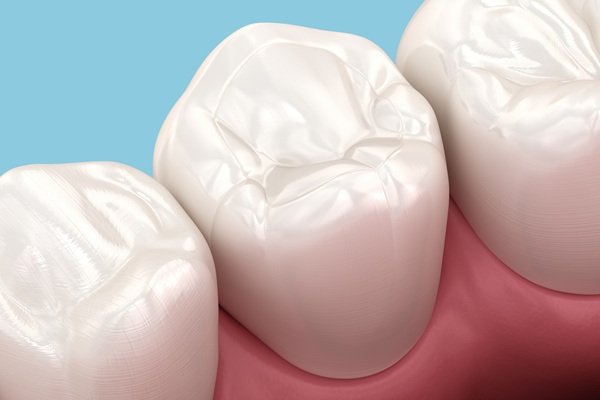5 Things to Avoid After Getting a Dental Filling

Getting a dental filling is a common procedure where a dentist restores the integrity of a decayed or damaged tooth. After placing a filling, you need to take the correct steps during recovery to ensure its durability and long-term effectiveness. Avoiding certain activities and habits promotes long-term oral health and prevents potential complications.
1. Eating hard or sticky foods
One of the most important post-treatment considerations is to avoid hard or sticky foods. Immediately after receiving a dental filling, the material may still be hardening, making it more sensitive to pressure. Consuming foods such as nuts, ice, or hard candies can place excessive force on the filled tooth, potentially leading to cracks or the filling becoming dislodged. In addition, sticky foods, such as chewing gum or caramel, may loosen the filling, leaving the tooth vulnerable to bacteria and decay. Patients should wait at least 24 hours before returning to their regular diet, particularly for amalgam fillings, which take longer to harden fully.
2. Consuming extremely hot or cold foods and beverages
Temperature sensitivity is a common side effect after getting a new dental filling. The affected tooth may respond more acutely to extreme hot or cold beverages due to the temporary inflammation of the dental pulp. This sensitivity can result in discomfort or a lingering ache. To minimize this risk, patients should avoid the following foods and drinks in the first few days after the procedure:
- Hot or iced coffee and tea
- Ice cold water
- Frozen smoothies
- Hot soup
- Ice cream
- Cold fruits
Patients should also avoid extreme temperature changes; for example, going from eating something hot to drinking a cold beverage can be jarring and painful. Being gentle and allowing the tooth to adjust gradually to the new filling can help reduce sensitivity over time.
3. Immediately chewing on the side of the treated tooth
Chewing directly on the side of the mouth that received the filling should be avoided until the anesthesia wears off completely and the filling has had sufficient time to settle. Numbness can lead to accidental biting of the tongue, cheek, or lips. Additionally, applying immediate pressure to a newly placed dental filling can disrupt its placement, especially if it involves composite resin that bonds to the tooth surface.
4. Clenching or grinding teeth
Patients who have a habit of grinding or clenching their teeth, especially at night, should take special precautions after receiving a filling. This condition, also known as bruxism, can put undue force on dental restorations and compromise their longevity. In these cases, the dentist may recommend that the patient wear a night guard to protect the filling and the surrounding teeth from excessive wear or damage.
5. Skipping regular oral hygiene routine
While some individuals may be hesitant to brush or floss near the newly filled tooth, they should still be consistent with their oral hygiene routine. Bacteria can accumulate around the filling, increasing the risk of decay occurring. Gentle brushing with a soft-bristled toothbrush and careful flossing around the tooth can help maintain the health of the surrounding gum tissue and teeth without disturbing the new restoration.
Protect your new filling
After getting a dental filling, certain behaviors and dietary choices can affect the healing process and shorten the lifespan of the restoration. Protect your new with the right care to ensure a successful recovery and long-term oral health. Call our Richmond Hill office for more tips or to schedule an appointment.
Request an appointment here: https://www.jamaicadentalny.com or call Jamaica Queens Dental at (718) 416-6427 for an appointment in our Richmond Hill office.
Check out what others are saying about our dental services on Yelp: Composite Fillings in Richmond Hill, NY.
Related Posts
A person’s smile comprises many parts, each contributing to the overall aesthetic, including teeth alignment, whiteness, smoothness, and shape, and a cosmetic dentist specializes in all these areas. They can help a patient improve their smile’s appearance so they can confidently show off their pearly whites to the world.However, many people do not realize that…
Tooth implants, or dental implants, are a common tooth-replacement option that uses an abutment and a prosthetic, such as a crown, bridge, or fixed dentures. There are three parts to the tooth implant process; however, surgery is required only for the placement of the implants. The other parts involve preparation and restoration. The word "surgery"…
A root canal restores a damaged or infected tooth without removing it, and recovery usually proceeds smoothly with the right care. Mild tenderness is common as the tissues calm down, especially when chewing or when the tooth is touched. Good oral hygiene, smart food choices, and timely follow-up help the tooth feel normal again. Because…
Traditional braces are one of the most effective orthodontic solutions for straightening teeth and correcting bite issues. Many individuals are surprised to learn that receiving traditional braces from a general dentist can be a convenient and effective way to improve their smile. General dentists with additional training in orthodontics can provide comprehensive care, guiding patients…







